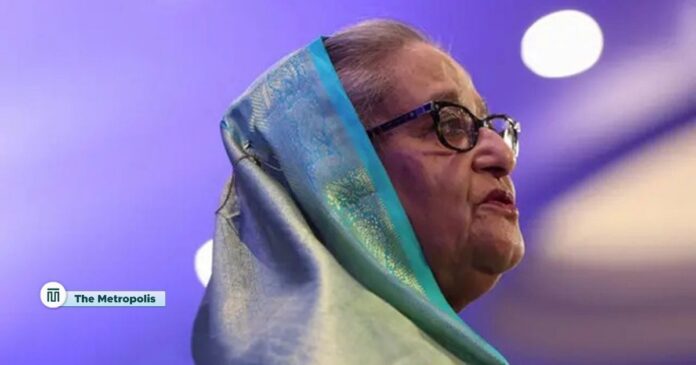India has extended the visa of Sheikh Hasina, the deposed prime minister, who has been residing in the country since August, according to a report by the Hindustan Times, citing sources familiar with the matter.
This decision comes amidst growing calls in Bangladesh for her extradition, as stated in the report published on Wednesday.
Hasina, 77, fled to India after resigning in the face of a national mass movement. Since her arrival at Hindon airbase on August 5, she has been out of public view, although it is believed that she has been moved to a safe house in Delhi.
The Hindustan Times report mentioned that the Muhammad Yunus-led interim government requested her extradition through a note verbale, an unsigned diplomatic correspondence sent to India’s Ministry of External Affairs on December 23.
Sources close to the situation, speaking anonymously, confirmed that Hasina’s visa was extended to facilitate her stay in India. They refuted rumors suggesting that Hasina was granted asylum in India, pointing out that India does not have a specific law for handling refugees or asylum-related matters.
The extension of Hasina’s visa required approval from the Ministry of Home Affairs, which must sign off on such decisions. It was processed through the local Foreigners Regional Registration Office (FRRO), though the sources did not provide further details.
On January 3, the Hindustan Times reported that the Indian government is unlikely to respond to Bangladesh’s extradition request, as sources indicated that Dhaka has not completed the necessary formalities to move the issue forward.
On Tuesday evening, a government official in Dhaka announced the decision by the Department of Immigration and Passports to revoke the passports of 97 individuals, including Hasina, due to their alleged involvement in enforced disappearances and killings during the July uprising.
“The passports department cancelled the passports of 22 people involved in enforced disappearances, while the passports of 75 individuals, including Sheikh Hasina, were revoked due to their involvement in the July killings,” said Abul Kalam Azad Majumder, Deputy Press Secretary to the Chief Advisor.
The developments follow a recent announcement from the International Criminal Tribunal (ICT), established to prosecute those accused of genocide and crimes against humanity, which issued a second arrest warrant for Hasina on January 6.
While the Ministry of External Affairs in India has acknowledged the receipt of Bangladesh’s extradition request, it has declined to comment on the matter. In the past, the ministry has stated that it is up to Hasina to decide her future plans.
“As far as former prime minister Sheikh Hasina is concerned, we don’t have an update on her plans. It is for her to take things forward,” Ministry spokesperson Randhir Jaiswal said during a media briefing last year.



